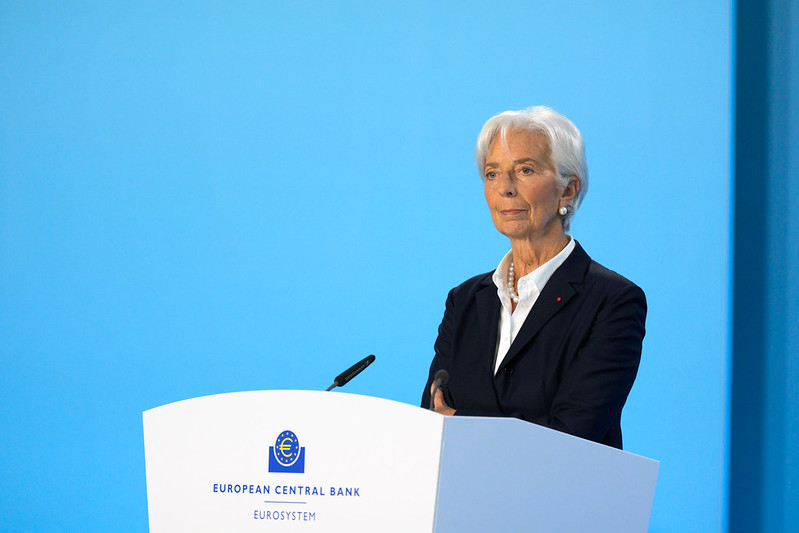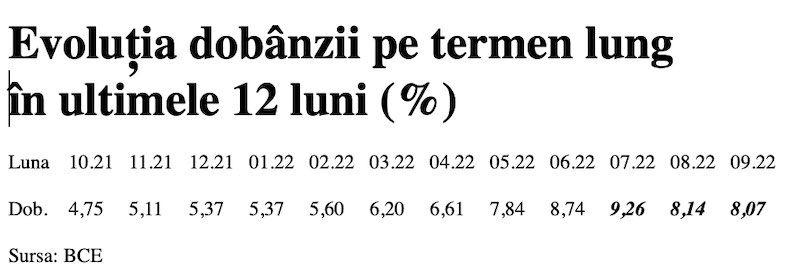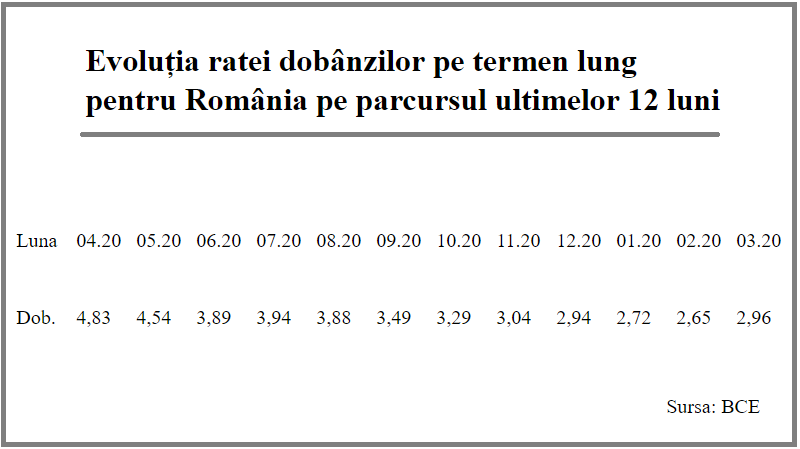ECB launches public consultation on Recommendations for the security of mobile payments
 Autor: Bancherul.ro
Autor: Bancherul.ro
2013-11-25 14:05
ECB PRESS RELEASE - ECB launches public consultation on Recommendations for the security of mobile payments
On 15 November 2013 the Governing Council of the European Central Bank (ECB) decided to launch a public consultation on the “Recommendations for the security of mobile payments”, in the context of the work undertaken by the European Forum on the Security of Retail Payments.
The Forum was established in 2011 as a voluntary cooperative initiative between relevant authorities from the European Economic Area – supervisors of payment service providers and overseers in particular – formed with the objective of facilitating common knowledge and understanding of issues related to the security of electronic retail payment services and instruments and, where necessary, issuing recommendations. A report on the security of internet payments was issued for public consultation in April 2012, followed by a report on “payment account access” services in January 2013. The current draft report on the security of mobile payments is the third of its kind.
The use of mobile devices and technologies for payments creates new risks to the security of payments. There are several reasons for that. First, the current generation of mobile devices and their operating systems was generally not designed with the security of payments in mind. Second, the use of radio technology for the transmission of sensitive payment data and personal data exposes mobile payments to risks that other payments do not entail. Third, compared with traditional payments, mobile payments involve new actors, including mobile network operators. The general public, finally, may be less aware of information security risks when using mobile devices compared with when making internet payments from desktop PCs or laptops at home. For these reasons – and notwithstanding the fact that mobile payments are still at an early stage of development and deployment – the Forum has prepared draft recommendations for the security of mobile payments. This work also has the benefit of developing a harmonised European approach to solutions that have the potential to develop more easily than traditional payments, also across national borders.
The present draft recommendations cover all payments in which the mobile device of a customer is used as a device to initiate a payment, except when the customer only uses a web browser to access the internet. In the latter case, the payment is considered as an internet payment, which is covered by the “Recommendations for the security of internet payments”. In practice, the present draft recommendations cover the following three categories of payments: contactless payments (e.g. using NFC technology), payments using a mobile payment application (“app”) previously downloaded onto the customer’s mobile device, and payments via a mobile network operator’s channel (using SMS, USSD or voice technology) with no specific “app” previously downloaded onto the customer’s mobile device (hereafter referred to as “SMS payments”).
Among the issues market participants may wish to comment on, the Forum would like to highlight the following two. The first is whether it is justified to maintain SMS payments within the scope of the report and, if so, how far the proposed recommendations would appropriately cover these payments. The second issue relates to the requirement of strong customer authentication for mobile payments and, in particular, an exemption from that requirement that could be considered for predefined categories of low-risk transactions based on a transaction risk analysis. Such an exemption would align the present recommendations with those the Forum developed for internet payments. At the same time, however, it would create a difference in security requirements compared with those for “card-present” payments, which may be difficult to justify. On both issues, views of market participants would provide important input for the finalisation of the work of the Forum on mobile payments.
Invitation to comment
All interested parties are invited to comment on the draft “Recommendations for the security of mobile payments”.
The respective national central banks and national supervisors of payment service providers will serve as contact points for market participants in their country and provide further information and/or answer questions regarding these recommendations.
Any comments received will be published on the internet, unless it is clearly indicated that the author does not consent to such publication. Comments should only be made using the response template provided and should be submitted to the ECB in English or in the relevant official EU language.
Deadline:
31 January 2014
Address for submission:
European Central Bank
Secretariat Division
Kaiserstrasse 29
D-60311 Frankfurt am Main
Germany
Fax: +49 69 1344 6170
E-mail: ecb.secretariat@ecb.europa.eu
Comentarii
Adauga un comentariu
Adauga un comentariu folosind contul de Facebook
Alte stiri din categoria: Noutati BCE
Banca Centrala Europeana (BCE) explica de ce a majorat dobanda la 2%
Banca Centrala Europeana (BCE) explica de ce a majorat dobanda la 2%, in cadrul unei conferinte de presa sustinute de Christine Lagarde, președinta BCE, si Luis de Guindos, vicepreședintele BCE. Iata textul publicat de BCE: DECLARAȚIE DE POLITICĂ MONETARĂ detalii
BCE creste dobanda la 2%, dupa ce inflatia a ajuns la 10%
Banca Centrala Europeana (BCE) a majorat dobanda de referinta pentru tarile din zona euro cu 0,75 puncte, la 2% pe an, din cauza cresterii substantiale a inflatiei, ajunsa la aproape 10% in septembrie, cu mult peste tinta BCE, de doar 2%. In aceste conditii, BCE a anuntat ca va continua sa majoreze dobanda de politica monetara. De asemenea, BCE a luat masuri pentru a reduce nivelul imprumuturilor acordate bancilor in perioada pandemiei coronavirusului, prin majorarea dobanzii aferente acestor facilitati, denumite operațiuni țintite de refinanțare pe termen mai lung (OTRTL). Comunicatul BCE Consiliul guvernatorilor a decis astăzi să majoreze cu 75 puncte de bază cele trei rate ale dobânzilor detalii
Dobânda pe termen lung a continuat să scadă in septembrie 2022. Ecartul față de Polonia și Cehia, redus semnificativ
Dobânda pe termen lung pentru România a scăzut în septembrie 2022 la valoarea medie de 8,07%, potrivit datelor publicate de Banca Centrală Europeană. Acest indicator, cu referința la un termen de 10 ani (10Y), a continuat astfel tendința detalii
Rata dobanzii pe termen lung pentru Romania, in crestere la 2,96%
Rata dobânzii pe termen lung pentru România a crescut la 2,96% în luna martie 2021, de la 2,65% în luna precedentă, potrivit datelor publicate de Banca Centrală Europeană. Acest indicator critic pentru plățile la datoria externă scăzuse anterior timp de șapte luni detalii
- BCE recomanda bancilor sa nu plateasca dividende
- Modul de functionare a relaxarii cantitative (quantitative easing – QE)
- Dobanda la euro nu va creste pana in iunie 2020
- BCE trebuie sa fie consultata inainte de adoptarea de legi care afecteaza bancile nationale
- BCE a publicat avizul privind taxa bancara
- BCE va mentine la 0% dobanda de referinta pentru euro cel putin pana la finalul lui 2019
- ECB: Insights into the digital transformation of the retail payments ecosystem
- ECB introductory statement on Governing Council decisions
- Speech by Mario Draghi, President of the ECB: Sustaining openness in a dynamic global economy
- Deciziile de politica monetara ale BCE
Profil de Bancher
-
Gheorghe Cismaru, Director General Adjunct Operatiuni - IT (COO) si Membru al Directoratului
Patria Bank

- Data nasterii: 15.08.1950 - Functia: Director ... vezi profil
Criza COVID-19
- In majoritatea unitatilor BRD se poate intra fara certificat verde
- La BCR se poate intra fara certificat verde
- Firmele, obligate sa dea zile libere parintilor care stau cu copiii in timpul pandemiei de coronavirus
- CEC Bank: accesul in banca se face fara certificat verde
- Cum se amana ratele la creditele Garanti BBVA
Topuri Banci
- Topul bancilor dupa active si cota de piata in perioada 2022-2015
- Topul bancilor cu cele mai mici dobanzi la creditele de nevoi personale
- Topul bancilor la active in 2019
- Topul celor mai mari banci din Romania dupa valoarea activelor in 2018
- Topul bancilor dupa active in 2017
Asociatia Romana a Bancilor (ARB)
- Băncile din România nu au majorat comisioanele aferente operațiunilor în numerar
- Concurs de educatie financiara pentru elevi, cu premii in bani
- Creditele acordate de banci au crescut cu 14% in 2022
- Romanii stiu educatie financiara de nota 7
- Gradul de incluziune financiara in Romania a ajuns la aproape 70%
ROBOR
- ROBOR: ce este, cum se calculeaza, ce il influenteaza, explicat de Asociatia Pietelor Financiare
- ROBOR a scazut la 1,59%, dupa ce BNR a redus dobanda la 1,25%
- Dobanzile variabile la creditele noi in lei nu scad, pentru ca IRCC ramane aproape neschimbat, la 2,4%, desi ROBOR s-a micsorat cu un punct, la 2,2%
- IRCC, indicele de dobanda pentru creditele in lei ale persoanelor fizice, a scazut la 1,75%, dar nu va avea efecte imediate pe piata creditarii
- Istoricul ROBOR la 3 luni, in perioada 01.08.1995 - 31.12.2019
Taxa bancara
- Normele metodologice pentru aplicarea taxei bancare, publicate de Ministerul Finantelor
- Noul ROBOR se va aplica automat la creditele noi si prin refinantare la cele in derulare
- Taxa bancara ar putea fi redusa de la 1,2% la 0,4% la bancile mari si 0,2% la cele mici, insa bancherii avertizeaza ca indiferent de nivelul acesteia, intermedierea financiara va scadea iar dobanzile vor creste
- Raiffeisen anunta ca activitatea bancii a incetinit substantial din cauza taxei bancare; strategia va fi reevaluata, nu vor mai fi acordate credite cu dobanzi mici
- Tariceanu anunta un acord de principiu privind taxa bancara: ROBOR-ul ar putea fi inlocuit cu marja de dobanda a bancilor
Statistici BNR
- Deficitul contului curent, aproape 20 miliarde euro după primele nouă luni
- Deficitul contului curent, aproape 18 miliarde euro după primele opt luni
- Deficitul contului curent, peste 9 miliarde euro pe primele cinci luni
- Deficitul contului curent, 6,6 miliarde euro după prima treime a anului
- Deficitul contului curent pe T1, aproape 4 miliarde euro
Legislatie
- Legea nr. 311/2015 privind schemele de garantare a depozitelor şi Fondul de garantare a depozitelor bancare
- Rambursarea anticipata a unui credit, conform OUG 50/2010
- OUG nr.21 din 1992 privind protectia consumatorului, actualizata
- Legea nr. 190 din 1999 privind creditul ipotecar pentru investiții imobiliare
- Reguli privind stabilirea ratelor de referinţă ROBID şi ROBOR
Lege plafonare dobanzi credite
- BNR propune Parlamentului plafonarea dobanzilor la creditele bancilor intre 1,5 si 4 ori peste DAE medie, in functie de tipul creditului; in cazul IFN-urilor, plafonarea dobanzilor nu se justifica
- Legile privind plafonarea dobanzilor la credite si a datoriilor preluate de firmele de recuperare se discuta in Parlament (actualizat)
- Legea privind plafonarea dobanzilor la credite nu a fost inclusa pe ordinea de zi a comisiilor din Camera Deputatilor
- Senatorul Zamfir, despre plafonarea dobanzilor la credite: numai bou-i consecvent!
- Parlamentul dezbate marti legile de plafonare a dobanzilor la credite si a datoriilor cesionate de banci firmelor de recuperare (actualizat)
Anunturi banci
- Cate reclamatii primeste Intesa Sanpaolo Bank si cum le gestioneaza
- Platile instant, posibile la 13 banci
- Aplicatia CEC app va functiona doar pe telefoane cu Android minim 8 sau iOS minim 12
- Bancile comunica automat cu ANAF situatia popririlor
- BRD bate recordul la credite de consum, in ciuda dobanzilor mari, si obtine un profit ridicat
Analize economice
- Inflația anuală a crescut marginal
- Comerțul cu amănuntul - în creștere cu 7,7% cumulat pe primele 9 luni
- România, pe locul 16 din 27 de state membre ca pondere a datoriei publice în PIB
- România, tot prima în UE la inflația anuală, dar decalajul s-a redus
- Exporturile lunare în august, la cel mai redus nivel din ultimul an
Ministerul Finantelor
- Datoria publică, 51,4% din PIB la mijlocul anului
- Deficit bugetar de 3,6% din PIB după prima jumătate a anului
- Deficit bugetar de 3,4% din PIB după primele cinci luni ale anului
- Deficit bugetar îngrijorător după prima treime a anului
- Deficitul bugetar, -2,06% din PIB pe primul trimestru al anului
Biroul de Credit
- FUNDAMENTAREA LEGALITATII PRELUCRARII DATELOR PERSONALE IN SISTEMUL BIROULUI DE CREDIT
- BCR: prelucrarea datelor personale la Biroul de Credit
- Care banci si IFN-uri raporteaza clientii la Biroul de Credit
- Ce trebuie sa stim despre Biroul de Credit
- Care este procedura BCR de raportare a clientilor la Biroul de Credit
Procese
- ANPC pierde un proces cu Intesa si ARB privind modul de calcul al ratelor la credite
- Un client Credius obtine in justitie anularea creditului, din cauza dobanzii prea mari
- Hotararea judecatoriei prin care Aedificium, fosta Raiffeisen Banca pentru Locuinte, si statul sunt obligati sa achite unui client prima de stat
- Decizia Curtii de Apel Bucuresti in procesul dintre Raiffeisen Banca pentru Locuinte si Curtea de Conturi
- Vodafone, obligata de judecatori sa despagubeasca un abonat caruia a refuzat sa-i repare un telefon stricat sau sa-i dea banii inapoi (decizia instantei)
Stiri economice
- Datoria publică, 52,7% din PIB la finele lunii august 2024
- -5,44% din PIB, deficit bugetar înaintea ultimului trimestru din 2024
- Prețurile industriale - scădere în august dar indicele anual a continuat să crească
- România, pe locul 4 în UE la scăderea prețurilor agricole
- Industria prelucrătoare, evoluție neconvingătoare pe luna iulie 2024
Statistici
- România, pe locul trei în UE la creșterea costului muncii în T2 2024
- Cheltuielile cu pensiile - România, pe locul 19 în UE ca pondere în PIB
- Dobanda din Cehia a crescut cu 7 puncte intr-un singur an
- Care este valoarea salariului minim brut si net pe economie in 2024?
- Cat va fi salariul brut si net in Romania in 2024, 2025, 2026 si 2027, conform prognozei oficiale
FNGCIMM
- Programul IMM Invest continua si in 2021
- Garantiile de stat pentru credite acordate de FNGCIMM au crescut cu 185% in 2020
- Programul IMM invest se prelungeste pana in 30 iunie 2021
- Firmele pot obtine credite bancare garantate si subventionate de stat, pe baza facturilor (factoring), prin programul IMM Factor
- Programul IMM Leasing va fi operational in perioada urmatoare, anunta FNGCIMM
Calculator de credite
- ROBOR la 3 luni a scazut cu aproape un punct, dupa masurile luate de BNR; cu cat se reduce rata la credite?
- In ce mall din sectorul 4 pot face o simulare pentru o refinantare?
Noutati BCE
- Acord intre BCE si BNR pentru supravegherea bancilor
- Banca Centrala Europeana (BCE) explica de ce a majorat dobanda la 2%
- BCE creste dobanda la 2%, dupa ce inflatia a ajuns la 10%
- Dobânda pe termen lung a continuat să scadă in septembrie 2022. Ecartul față de Polonia și Cehia, redus semnificativ
- Rata dobanzii pe termen lung pentru Romania, in crestere la 2,96%
Noutati EBA
- Bancile romanesti detin cele mai multe titluri de stat din Europa
- Guidelines on legislative and non-legislative moratoria on loan repayments applied in the light of the COVID-19 crisis
- The EBA reactivates its Guidelines on legislative and non-legislative moratoria
- EBA publishes 2018 EU-wide stress test results
- EBA launches 2018 EU-wide transparency exercise
Noutati FGDB
- Banii din banci sunt garantati, anunta FGDB
- Depozitele bancare garantate de FGDB au crescut cu 13 miliarde lei
- Depozitele bancare garantate de FGDB reprezinta doua treimi din totalul depozitelor din bancile romanesti
- Peste 80% din depozitele bancare sunt garantate
- Depozitele bancare nu intra in campania electorala
CSALB
- La CSALB poti castiga un litigiu cu banca pe care l-ai pierde in instanta
- Negocierile dintre banci si clienti la CSALB, in crestere cu 30%
- Sondaj: dobanda fixa la credite, considerata mai buna decat cea variabila, desi este mai mare
- CSALB: Romanii cu credite caută soluții pentru reducerea ratelor. Cum raspund bancile
- O firma care a facut un schimb valutar gresit s-a inteles cu banca, prin intermediul CSALB
First Bank
- Ce trebuie sa faca cei care au asigurare la credit emisa de Euroins
- First Bank este reprezentanta Eurobank in Romania: ce se intampla cu creditele Bancpost?
- Clientii First Bank pot face plati prin Google Pay
- First Bank anunta rezultatele financiare din prima jumatate a anului 2021
- First Bank are o noua aplicatie de mobile banking
Noutati FMI
- FMI: criza COVID-19 se transforma in criza economica si financiara in 2020, suntem pregatiti cu 1 trilion (o mie de miliarde) de dolari, pentru a ajuta tarile in dificultate; prioritatea sunt ajutoarele financiare pentru familiile si firmele vulnerabile
- FMI cere BNR sa intareasca politica monetara iar Guvernului sa modifice legea pensiilor
- FMI: majorarea salariilor din sectorul public si legea pensiilor ar trebui reevaluate
- IMF statement of the 2018 Article IV Mission to Romania
- Jaewoo Lee, new IMF mission chief for Romania and Bulgaria
Noutati BERD
- Creditele neperformante (npl) - statistici BERD
- BERD este ingrijorata de investigatia autoritatilor din Republica Moldova la Victoria Bank, subsidiara Bancii Transilvania
- BERD dezvaluie cat a platit pe actiunile Piraeus Bank
- ING Bank si BERD finanteaza parcul logistic CTPark Bucharest
- EBRD hails Moldova banking breakthrough
Noutati Federal Reserve
- Federal Reserve anunta noi masuri extinse pentru combaterea crizei COVID-19, care produce pagube "imense" in Statele Unite si in lume
- Federal Reserve urca dobanda la 2,25%
- Federal Reserve decided to maintain the target range for the federal funds rate at 1-1/2 to 1-3/4 percent
- Federal Reserve majoreaza dobanda de referinta pentru dolar la 1,5% - 1,75%
- Federal Reserve issues FOMC statement
Noutati BEI
- BEI a redus cu 31% sprijinul acordat Romaniei in 2018
- Romania implements SME Initiative: EUR 580 m for Romanian businesses
- European Investment Bank (EIB) is lending EUR 20 million to Agricover Credit IFN
Mobile banking
- Comisioanele BRD pentru MyBRD Mobile, MyBRD Net, My BRD SMS
- Termeni si conditii contractuale ale serviciului You BRD
- Recomandari de securitate ale BRD pentru utilizatorii de internet/mobile banking
- CEC Bank - Ghid utilizare token sub forma de card bancar
- Cinci banci permit platile cu telefonul mobil prin Google Pay
Noutati Comisia Europeana
- Avertismentul Comitetului European pentru risc sistemic (CERS) privind vulnerabilitățile din sistemul financiar al Uniunii
- Cele mai mici preturi din Europa sunt in Romania
- State aid: Commission refers Romania to Court for failure to recover illegal aid worth up to €92 million
- Comisia Europeana publica raportul privind progresele inregistrate de Romania in cadrul mecanismului de cooperare si de verificare (MCV)
- Infringements: Commission refers Greece, Ireland and Romania to the Court of Justice for not implementing anti-money laundering rules
Noutati BVB
- BET AeRO, primul indice pentru piata AeRO, la BVB
- Laptaria cu Caimac s-a listat pe piata AeRO a BVB
- Banca Transilvania plateste un dividend brut pe actiune de 0,17 lei din profitul pe 2018
- Obligatiunile Bancii Transilvania se tranzactioneaza la Bursa de Valori Bucuresti
- Obligatiunile Good Pople SA (FRU21) au debutat pe piata AeRO
Institutul National de Statistica
- Deficitul balanței comerciale la 9 luni, cu 15% mai mare față de aceeași perioadă a anului trecut
- Producția industrială, în scădere semnificativă
- Pensia reală, în creștere cu 8,7% pe luna august 2024
- Avansul PIB pe T1 2024, majorat la +0,5%
- Industria prelucrătoare a trecut pe plus în aprilie 2024
Informatii utile asigurari
- Data de la care FGA face plati pentru asigurarile RCA Euroins: 17 mai 2023
- Asigurarea împotriva dezastrelor, valabilă și in caz de faliment
- Asiguratii nu au nevoie de documente de confirmare a cutremurului
- Cum functioneaza o asigurare de viata Metropolitan pentru un credit la Banca Transilvania?
- Care sunt documente necesare pentru dosarul de dauna la Cardif?
ING Bank
- La ING se vor putea face plati instant din decembrie 2022
- Cum evitam tentativele de frauda online?
- Clientii ING Bank trebuie sa-si actualizeze aplicatia Home Bank pana in 20 martie
- Obligatiunile Rockcastle, cel mai mare proprietar de centre comerciale din Europa Centrala si de Est, intermediata de ING Bank
- ING Bank transforma departamentul de responsabilitate sociala intr-unul de sustenabilitate
Ultimele Comentarii
-
LOAN OFFER
Buna ziua Aceasta pentru a informa publicul larg că oferim împrumuturi celor care au nevoie de ... detalii
-
!
Greu cu limba romana! Ce legatura are cuvantul "ecosistem" din limba romana cu sistemul de plati ... detalii
-
Bancnote vechi
Am 2 bancnote vechi:1-1000000lei;2-5000000lei Anul ... detalii
-
Bancnote vechi
Numar de ... detalii
-
Bancnote vechi
Am 3 bancnote vechi:1-1000000lei;1-5000lei;1-100000;mai multe bancnote cu eclipsa de ... detalii









